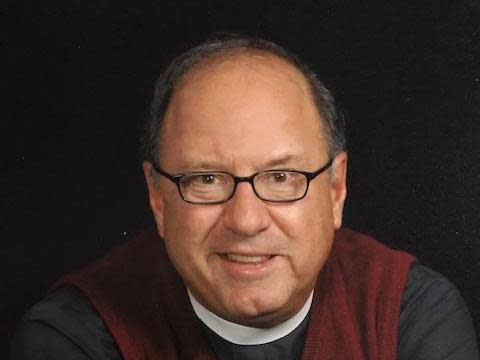Henry Idema: Religion and cognitive dissonance

One of the great mysteries in both religion and politics is why people continue to hold on to fervently cherished beliefs in spite of evidence contrary to those beliefs. I will give some examples in both religion and politics, and offer a theory which explains much of our behavior.
Many members of world religions such as Christianity, Islam, Judaism and Hinduism, view their Scriptures as being literally true, word for word, even in translation from Hebrew and Greek to English in the case of the Bible, for example. In the 19th century, biblical literalism was a commonly accepted belief in most church pews in England and America. But when geology, biblical criticism and the theory of evolution made a literal understanding of the Bible difficult to maintain in light of the evidence (e.g., the Earth was proven to be millions of years old, not a few thousand as was thought, or Noah's Ark could not have possibly have saved the animals of the Earth because it could not have been big enough).

Evolution created a spiritual crisis for some Christians if they believed that the story of Adam and Eve was an accurate historical account of the origin of humanity. Other Christians interpreted the biblical accounts of Noah and Adam and Eve as stories, while not literally true, yet contain profound truths. The story of Adam and Eve illustrates our will to power and the story of Noah illustrates that there are drastic consequences for sin.
Many readers of this article, no doubt, still read their Bible as being literally true, word for word. And they have doubled down on their biblical literalism in face of a doubting secular culture. Other readers use the methods of biblical criticism in order to sort out what is history, what are stories containing truths, and what needs to be rejected, such as slavery and the treatment of women in biblical times. Sadly, many people who were once Christians have abandoned their faith because they are unable to adjust their beliefs in light of science and history.
Before I turn to politics, let me offer a theory that explains much. Leon Festinger was a cognitive psychologist in the 1950s who taught at Michigan, Minnesota and Stanford, among other career stops. In l956, he published a book called "When Prophecy Fails," where he and his coauthors put forth the theory of cognitive dissonance. In a nutshell, the theory argues that people are driven to promote the harmony and coherence of their beliefs, attitudes and behaviors in face of a breakdown in their beliefs. A meltdown of that harmony and coherence creates cognitive dissonance.
When such a meltdown happens due to, for example, persuasive evidence which threatens a person's beliefs, attitudes and behaviors, one of two things happens. A person takes that evidence and makes adjustments to his or her beliefs, attitudes and behaviors. Or, a person reaffirms his or her beliefs, attitudes and behaviors with even more energy and emotional commitment. Thus we have in our society the biblical literalists who maintain their religious stance with vehemence, and others who reject that position with equal enthusiasm.
My point is that most of us hold cherished beliefs that are difficult for us to give up or even adjust. Those beliefs may very well be the glue keeping our mental state from turning into chaos and anxiety or depression. Thus any threat to those beliefs is fought against because of our deep fears of the consequences of the loss of those beliefs and what that may mean for our lives.
The theory of cognitive dissonance explains why religious cults who expect Jesus to return at such and such a date, simply make adjustments to the date when Jesus did not come. Members of such a cult do not give up their belief that Jesus will return soon. They simply push out the date, and if that date fails to witness the return of Jesus, another date is offered by the cult. This theory can be applied to cults who hold to prophecies of aliens from outer space coming at a certain place and time. When those prophecies are shown to be wrong, the prophecies are not given up but readjusted.
Now in conclusion let us turn to the Big Lie that Trump and his followers have maintained to this day. The Big Lie is that Trump actually won the 2020 election. The evidence that he did not win was for many of Trump's followers so threatening to their heart felt belief — that Trump could not possibly lose to Biden — that instead of accepting the obvious truth that he was a loser, these Trump followers simply adjusted their beliefs. Trump did not lose but actually he won! And the election was stolen from him. Whether Trump himself believes in the Big Lie is still being debated and might be the crux of future legal proceedings against him.
All the evidence from 62 court appeals, all the evidence given by Trump supporters during the Jan. 6 congressional hearings, and all the state recounts of ballots, did not dent the beliefs, attitudes and behaviors of millions of Trump's followers. These election deniers have all the appearance of a quasi religious/political cult.
In my experience, it has been impossible to move a biblical literalist away from that view of the Bible by any sort of reasoning. Same with a Muslim's view of the Koran. Same with Trump followers who believe with every fiber of their being Trump won the election and Biden is not a legitimate president. The fact that Trump — for 187 minutes on Jan. 6 — watched with apparent glee the insurrection and did nothing to stop it, one would think that this single fact would loosen the grip Trump has on his followers. But I have seen no evidence of this.
Cognitive dissonance is such an awful mental state for many people, that it is psychologically understandable why so many people can not give up their beliefs. They have too much emotional and intellectual investment in those beliefs. And the threat of the loss of those beliefs feels like the whole world is collapsing upon the soul. Thus racist, religious and political beliefs continue to divide us, reinforced by the media and internet.
Psychotherapy and education (reading books instead of hours on the computer) are resources available to all of us. Sadly, the theory of cognitive dissonance explains by so many people refuse to get counseling or only watch TV networks and online blogs which do not challenge one's beliefs but simply reinforces them. This is the world we now live in.
— Henry Idema lives in Grand Haven. He can be reached at henryidema3@yahoo.com.
This article originally appeared on The Holland Sentinel: Henry Idema: Religion and cognitive dissonance

